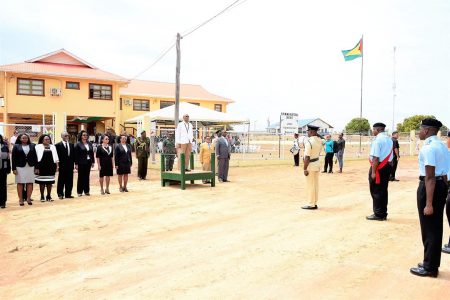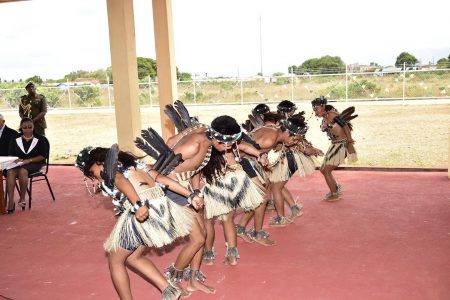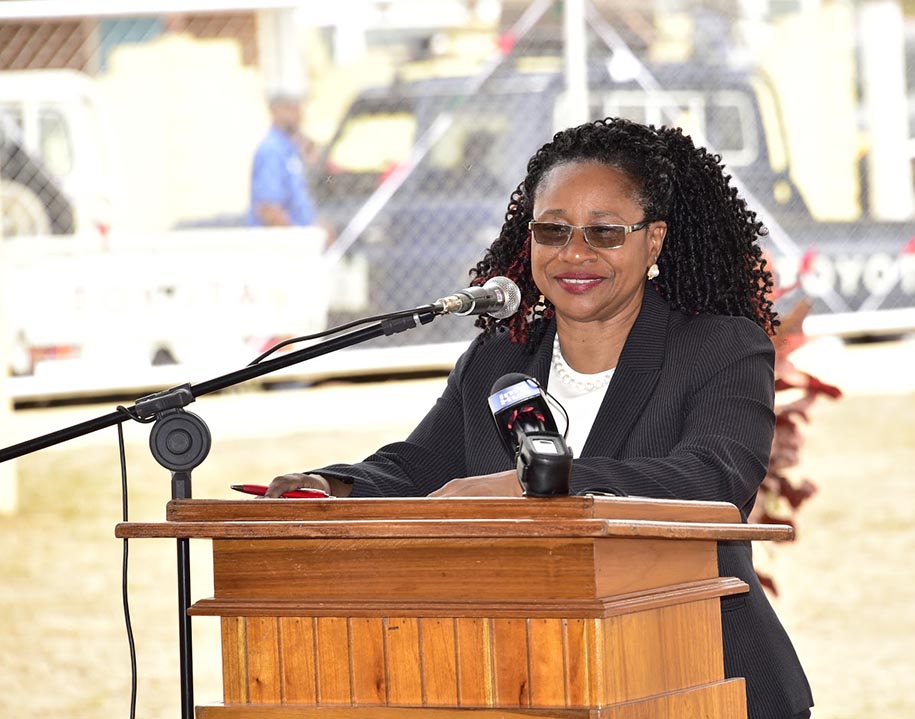The Rupununi Magisterial District Court Office and Courts at Annai, Aishalton and Karasabai were on Friday opened and according to President David Granger residents of the region will now have equal access to justice.
“There can be no equality before the law without access to justice. The law should be a great leveller. It should not be a divider. It should not be an instrument of oppression of the rich against the poor, or of the strong against the weak. It emphasises citizens’ basic human right to have legal recourse and redress for wrongs committed against them and their property and for the preservation of public order,” he was quoted as saying during the opening ceremony, in a Ministry of the Presidency (MoTP) press release.
According to the release, the president noted that ensuring equal access to justice under the law in the Rupununi has always presented a challenge with residents being forced to travel from far- flung communities in the Region to the Magistrates’ Court Office in Georgetown; some 425 km away.
President Granger stated that access to justice is a public good and that the State has the responsibility to ensure that it is available to every citizen.

“Residents – including victims of domestic abuse trapped in loveless relationships with their abusers; mothers denied access to their children because they cannot take their husbands and children-fathers to court a hundred kilometres away; small miners and businessmen facing bankruptcy because they cannot reach the court to claim unpaid debts or wages – should not be ignored. Access to justice, including ease of access, is every citizen’s legitimate expectation. Residents should not have to travel long distances to access public services, including legal services in other Regions. They should enjoy these services in their respective regions,” he was quoted as saying.
He said that along with access to justice, the Government’s regionalism approach is built on ensuring every region has equal access to public education, public health, public information such as the new radio station, public security with the establishment of a police divisional headquarters, public utilities including electricity and clean water and citizenship services such as birth and death registration, passports and naturalisation and social protection. The Head of State, the release said stated he is happy that the judicial branch of Government has adopted this regionalism approach.

Magistrate Allan Wilson who will be presiding in the district, recalled his early days as a Magistrate assigned to Lethem and said that in 2004 the court was conducted in a very small area within the police station. According to the MoTP press release, Wilson stated that the court schedule allowed for sittings for about one week every three months. In order to accommodate the volume of cases, the court schedule was revised and instead of meeting one week every three months, an additional week was added. With the commissioning of the new court in 2015 and now the creation of this sub-registry and the expansion of the Magisterial District to include parts of Aishalton and Karasabai, he noted that residents will now be able to access services that were not readily available to them before.
“No longer will the litigants have to travel long distances to Georgetown to recover their bail at the end of trials… and it will also now be easier for domestic violence issues to be addressed in a timely fashion… This sub-registry will also allow for more accurate record-keeping in respect of matters that were addressed,” he was quoted as saying.
Acting Chancellor of the Judiciary, Justice Yonette Cummings-Edwards, described the difficulties residents faced in accessing the court in Georgetown and noted that it was critical that justice be brought to the doorsteps of the residents of the 89 communities in the Rupununi.
“Prior to this office… court was held occasionally and I’m being modest. For the Lethem area, court was held once every three months, once quarterly, maybe two weeks within the quarter… Justice is not one-sided. Justice has to be for both sides. For residents of the region, persons coming all the way from Karasabai or even Aishalton, most of the time the court will be held here in Lethem and they will have to travel sometimes two days just to get to court. And if water is high, you’re familiar with that phrase, it would take even longer for them to get to this court. We in the Supreme Court, we do not sit in an ivory tower. We are in tune with what is going on the ground and we care,” she was quoted as saying.
The Chancellor according to the release also described the challenges faced by the Guyana Police Force as a result of infrequent court sittings. “This project also will bring enormous benefits for the police because out of that system, if someone who was charged with an offence, if it was a serious offence or a non-bailable offence, the Guyana Police Force had to find money to take that prisoner out to Georgetown before Her Worship, the Chief Magistrate, who would take the plea and commit that person on remand to prison or put that person on bail… Also, apart from that, if someone wanted to take advantage of the system, they would have known that court will not be sitting …for the next three months so they can fight and do all they wanted to do and know very well that the police cannot do anything much but just give them a warning because court won’t be there anyway and… the maximum time the police could hold them is 72 hours,” she explained.
Among the others present at the opening ceremony were senior members of the judiciary, Director of Public Prosecutions (DPP), Shalimar Ali Hack, Minister of Communities, Ronald Bulkan, Mayor of Lethem, Carlton Beckles and UN Resident Coordinator Mikiko Tanaka.









